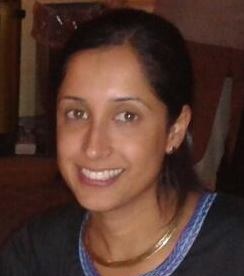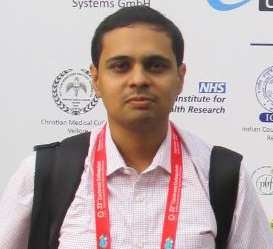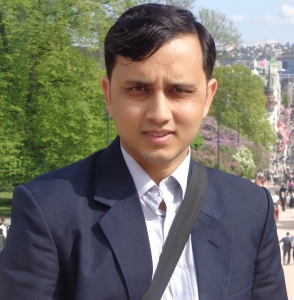Few would argue against the benefits of evidence informed public health and health policies. However, efforts to inform health policy in resource limited settings face particularly daunting challenges—often specific to the political complexity and resource limitations experienced uniquely in low and middle income countries (LMICs).
The Nepal Health Research Council (NHRC), a Government of Nepal body, has a long held mandate to support informed decision making by health policymakers in Nepal—an exciting but daunting role to operationalise. Informing health policy assumes that there is a base of information to communicate: in Nepal, this often isn’t available.
Let’s say policymakers would like to design an insurance system: what are vulnerable populations in Nepal spending their money on in healthcare, so that this can be covered? We don’t know. Or take a simpler example, of planning interventions to decrease mortality rates secondary to non-communicable diseases. Can health promotion programmes be designed in the Himalayas of Nepal based on information that is modelled on available data from their Indian neighbours? These are the questions faced by policymakers in Nepal every day.
This information deficit is an added burden on top of the common challenges experienced in linking policy formulation with evidence. Insufficient capacity for generating and interpreting evidence, a lack of consensus on research priorities, communication gaps between researchers and policymakers, and a dearth of political and scientific will are widely cited barriers. However, the daunting hurdles of a complex and opaque political situation after decades of immense political turmoil, and an unparalleled diversity in geography, culture, and health outcomes are challenges unique to Nepal.
The NHRC strategy to push its mandate of bringing positive change to health policy into practice has focused on the “4P” formula—acknowledging the particular added value of global partnerships.
The 3Ps: Persistent, Proactive, and Positive
Being Persistent
The NHRC set up an Evidence Support Group only recently. The Evidence Support Group formally engages in current policy formulation as a member in the national health sector planning process. This group has focused on supporting policymakers in summarising the available evidence, advising on the development of a national research plan, and advising on priority setting methods that are systematic and transparent. The key is to be persistent and seize every available opportunity.
Being Proactive
A key driving factor in the NHRC’s work has been the day to day support and shared learning from colleagues involved in similar work around the world. Seeing this huge opportunity and resource for practical, shared learning and capacity building, an NHRC team brought its challenges and suggestions to the experts: individuals and groups facing these same challenges around the world. This culminated recently in a series of meetings, workshops, and special sessions. The NHRC had a proactive part in seeking input from existing global partners, and fostering newer partnerships, at the 22nd Cochrane Colloquium in Hyderabad, India, which was held last month.
Being Positive
There is a strong, and logical, focus on capacity building in promoting evidence informed policymaking in low resource settings. However, in Nepal and other LMICs, it is even more imperative to capitalise on existing capacity and opportunities, and have the confidence to move forward despite existing barriers. In fact, there is an even stronger imperative to ensure that policy now is informed by available information and local context and priorities—as the consensus is that “there is no luxury to spend scarce resources without clear direction.”
The fourth ‘P’: Partnerships and South-South Cooperation
Central to the NHRC’s strategies has been an openness to partnership and collaboration, both within Nepal and abroad. In the past, this has focused on technical support and mentorship from institutions based in high resource settings. However, this has drawbacks, particularly in maintaining a relevance to local context and priorities. Efforts to strengthen and improve partnerships with groups in LMICs, who are facing similar challenges around the world, led to the recent collaboration at the Cochrane Colloquium, which was facilitated with the support of partners from the South Asian Cochrane Network & Centre, India; the University of Ottawa, Canada; the Caribbean Branch of the US Cochrane Center; and the Cochrane Agenda Setting and Priority Methods Group.
This was a key moment for all to share lessons and experiences within the group, and to hear from groups doing similar work elsewhere, as for example in South Africa and India. Capitalising on these global partnerships and South-South cooperation—with a focus on shared challenges, experiences, and strategies—is a key opportunity and resource for the NHRC and other groups working to promote evidence informed health policy in LMICs. The relationships have been built; the challenge ahead is keeping these relationships strong, and continuing to share strategies and learning in an effective manner across the globe.
Disclaimer: The views and opinions expressed are solely of the authors and do not represent the views of their institutions or funders.
 Sangeeta Rana is a Fulbright-Clinton fellow and special assistant at the Nepal Health Research Council, Government of Nepal, Ministry of Health and Population. She is also a specialty registrar in public health medicine based in London.
Sangeeta Rana is a Fulbright-Clinton fellow and special assistant at the Nepal Health Research Council, Government of Nepal, Ministry of Health and Population. She is also a specialty registrar in public health medicine based in London.
SR declares she has no conflict of interest.
Soumyadeep Bhaumik is a biomedical genomics fellow at the BioMedical Genomics Centre, Kolkata [an autonomous institution aided by Department of Biotechnology, Government of India (National Institute of Biomedical Genomics, India) and Government of West Bengal (IPGME&R, Kolkata)]. He is also a member of the Cochrane Agenda Setting and Priority Methods Group (CASPMG). He tweets at @DrSoumyadeepB.
SB declares he has no conflict of interest.
Krishna Aryal is a research officer at the Nepal Health Research Council, Government of Nepal, Ministry of Health and Population.
KA declares he has no conflict of interest.

